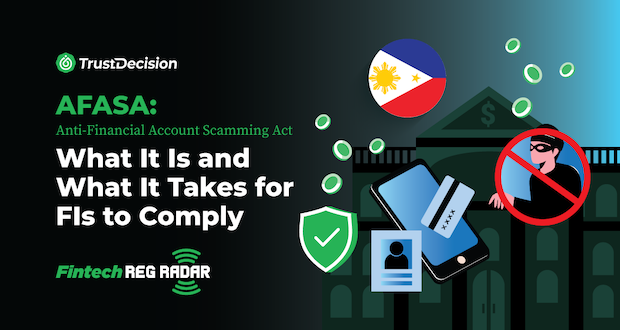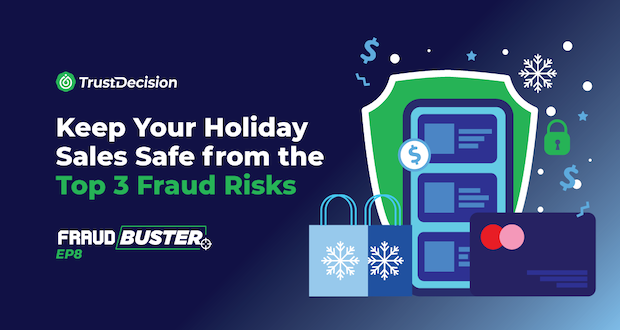1. Phishing Scams
Phishing scams involve fraudulent attempts to obtain sensitive information such as usernames, passwords, and financial details by masquerading as a trustworthy entity in electronic communications. In the eCommerce industry, phishing scams can have a significant impact, leading to data breaches, financial losses, and damage to customer trust. These scams often target employees or customers through deceptive emails, messages, or websites, aiming to trick them into divulging confidential information.
Real-world instances of phishing scams targeting businesses are numerous. For example, an employee might receive an email that appears to be from a trusted source, such as a bank or a senior executive, requesting login credentials or financial information. In more targeted attacks known as spear phishing, attackers customize their messages to a specific individual within the company, often using personal information to appear legitimate. Another common tactic is clone phishing, where attackers create a nearly identical copy of a legitimate email that the victim has previously received, altering only the attachment or link to redirect to a malicious site.
To prevent phishing scams, businesses should focus on several key strategies. Employee training is crucial; regular training sessions can educate employees on how to recognize phishing attempts. This includes identifying suspicious email addresses, checking for grammatical errors, and verifying unexpected requests for sensitive information. Additionally, implementing email filtering systems can help detect and block phishing emails before they reach employees' inboxes. These systems use algorithms to identify common phishing characteristics and prevent malicious emails from being delivered. Finally, requiring two-factor authentication (2FA) for accessing sensitive information adds an extra layer of security. 2FA requires a second form of verification, such as a code sent to a mobile device, making it more difficult for attackers to gain unauthorized access even if they obtain login credentials.
By combining employee education, advanced email filtering, and robust authentication methods, businesses can significantly reduce the risk of falling victim to phishing scams.
2. Account Takeover Fraud
Account takeover fraud occurs when a malicious actor gains unauthorized access to a business account, often by stealing login credentials through phishing, malware, or other means. Once inside, the fraudster can manipulate account details, make unauthorized transactions, or steal sensitive information. The consequences for businesses can be severe, including financial losses, compromised customer data, and significant damage to the company's reputation.
There have been numerous cases where businesses have been severely impacted by account takeover fraud. For instance, a company might find that a fraudster has gained access to their financial accounts, making unauthorized transfers and draining funds. In another scenario, attackers might take over an employee's account to manipulate order details or access sensitive customer information. These incidents not only result in immediate financial damage but also erode customer trust and can lead to long-term reputational harm.
To prevent account takeover fraud, businesses should implement several key measures. Multi-Factor Authentication (MFA) is a critical security layer that requires users to provide two or more verification factors to gain access to an account. This could include something they know (password), something they have (a mobile device), or something they are (biometric verification). By requiring multiple forms of authentication, MFA makes it significantly harder for attackers to gain unauthorized access.
Continuous account monitoring is another essential strategy. Businesses should use advanced tools to monitor account activity for unusual behavior, such as login attempts from unfamiliar locations or devices, sudden changes in account settings, or unexpected large transactions. These monitoring systems can trigger alerts and enable swift action to prevent potential fraud.
Lastly, enforcing strong password policies is fundamental in protecting against account takeover. Businesses should require employees to use strong, unique passwords that combine letters, numbers, and special characters. Regular password changes should also be mandated to minimize the risk of compromised credentials being used over an extended period.
By adopting MFA, continuous monitoring, and robust password policies, businesses can significantly reduce the risk of account takeover fraud and protect their sensitive information and financial assets.
3. Identity Theft
Identity theft involves the unauthorized use of someone’s personal information, such as Social Security numbers, credit card details, or business credentials, to commit fraud. In the eCommerce industry, identity theft can have far-reaching implications, including financial losses, legal repercussions, and damage to the company's reputation. Fraudsters may use stolen identities to make unauthorized purchases, open fraudulent accounts, or gain access to sensitive business information.
Instances of identity theft impacting eCommerce companies are alarmingly common. For example, a fraudster might steal the identity of a customer to make unauthorized purchases, leading to chargebacks and financial losses for the business. In another scenario, an attacker might use stolen employee credentials to access sensitive company data or manipulate order details. These incidents not only result in immediate financial damage but can also lead to long-term trust issues with customers and partners.
To prevent identity theft, businesses should prioritize several key strategies. Secure data storage is paramount. Companies must use encryption and other secure storage solutions to protect sensitive data both in transit and at rest. Encryption ensures that even if data is intercepted or accessed without authorization, it remains unreadable and unusable to the fraudster.
Regular security audits are also essential. Conducting frequent audits helps identify and address vulnerabilities in the company's security infrastructure. These audits should include assessments of data storage practices, access controls, and employee compliance with security protocols. By proactively identifying weaknesses, businesses can take corrective actions before they are exploited by fraudsters.
Implementing strict access controls is another critical measure. Businesses should limit access to sensitive information based on the principle of least privilege, ensuring that employees only have access to the data necessary for their roles. This can be achieved through role-based access controls (RBAC) and regular reviews of access permissions. Additionally, using advanced authentication methods, such as biometric verification, can further enhance security.
By securing data storage, conducting regular security audits, and implementing stringent access controls, businesses can significantly reduce the risk of identity theft and protect their valuable information and assets.
4. Chargeback Fraud
Chargeback fraud occurs when a customer makes a purchase using a credit or debit card and then disputes the charge with their bank, claiming it was unauthorized or that the product or service was not received as described. This results in the bank reversing the transaction, and the business not only loses the sale but may also incur additional fees and penalties. Chargeback fraud can have significant financial implications for businesses, including lost revenue, increased processing fees, and potential damage to merchant accounts.
Scenarios where businesses have experienced chargeback fraud are varied. For example, a customer might purchase a high-value item online and then file a chargeback claim, falsely stating that the item was never delivered. In another instance, a customer might use a stolen credit card to make a purchase and then the legitimate cardholder disputes the charge, leading to a chargeback. These fraudulent claims can be challenging to contest, often leaving businesses at a financial loss and with a tarnished reputation.
To prevent chargeback fraud, businesses should implement several key strategies. Establishing and communicating clear return policies is essential. By providing detailed information about return and refund procedures, businesses can reduce misunderstandings and set clear expectations for customers. This transparency can help mitigate disputes and discourage fraudulent chargeback claims.
Transaction verification is another crucial measure. Businesses should use verification methods to confirm the legitimacy of transactions before processing them. This can include requiring CVV codes for online purchases, using address verification systems (AVS), and implementing 3D Secure authentication. These steps add layers of security that make it more difficult for fraudsters to use stolen card information successfully.
Maintaining open lines of customer communication is also vital. By promptly addressing customer inquiries and resolving disputes quickly, businesses can often prevent chargebacks from being filed in the first place. Providing excellent customer service and being proactive in resolving issues can build trust and reduce the likelihood of customers resorting to chargebacks.
By establishing clear return policies, verifying transactions, and maintaining effective communication with customers, businesses can significantly reduce the risk of chargeback fraud and protect their revenue and reputation.
5. Payment Fraud
Payment fraud encompasses a range of deceptive activities aimed at unlawfully obtaining funds or sensitive payment information. This type of fraud can take various forms, including unauthorized transactions, use of stolen credit card information, and fraudulent chargebacks. Payment fraud poses significant risks to businesses, leading to financial losses, increased operational costs, and potential damage to customer trust and brand reputation.
Examples of payment fraud incidents in businesses are diverse and can be highly damaging. For instance, a company might experience unauthorized transactions where fraudsters use stolen credit card information to make purchases. Another common scenario is when fraudsters manipulate payment systems to divert funds into their accounts. Additionally, businesses may face fraudulent chargebacks, where customers dispute legitimate transactions to receive a refund while retaining the purchased goods or services. These incidents not only result in direct financial losses but also incur additional costs related to chargeback fees and fraud prevention measures.
To prevent payment fraud, businesses should adopt several key strategies. Using secure payment gateways is fundamental. Reputable and secure payment gateways provide robust encryption and security protocols to protect sensitive payment information during transactions. These gateways often include features such as fraud detection tools and secure authentication processes, making it more difficult for fraudsters to exploit payment systems.
Implementing transaction monitoring systems is another critical measure. These systems continuously monitor transactions for suspicious activity, such as unusual purchase patterns, high-value transactions, or multiple transactions from the same IP address. By identifying and flagging potentially fraudulent transactions in real-time, businesses can take immediate action to prevent unauthorized payments and mitigate risks.
Tokenization is also an effective strategy to reduce the risk of payment fraud. Tokenization involves replacing sensitive payment information, such as credit card numbers, with unique tokens that have no exploitable value. These tokens can be used for processing payments without exposing the actual payment data, significantly reducing the risk of data breaches and unauthorized access.
By utilizing secure payment gateways, implementing transaction monitoring systems, and adopting tokenization, businesses can significantly enhance their defenses against payment fraud. These measures not only protect financial assets but also help maintain customer trust and ensure the integrity of payment processes.
6. Credit Card Fraud
Credit card fraud involves the unauthorized use of credit card information to make purchases or withdraw funds. This type of fraud can have a significant impact on eCommerce businesses, leading to financial losses, increased chargeback rates, and damage to customer trust. Fraudsters may obtain credit card information through various means, including data breaches, phishing scams, and skimming devices, and use it to conduct fraudulent transactions.
Cases of credit card fraud in the business context are numerous and can be highly detrimental. For example, a retailer might discover that a series of high-value transactions were made using stolen credit card information, resulting in substantial chargebacks and financial losses. In another scenario, a service provider might face a data breach where customers' credit card details are compromised, leading to unauthorized transactions and a loss of customer confidence. These incidents not only affect the immediate financial health of the business but also have long-term repercussions on its reputation and customer relationships.
To prevent credit card fraud, businesses should implement several key measures. Encryption is essential for protecting credit card information during transmission and storage. By encrypting data, businesses ensure that even if it is intercepted or accessed without authorization, it remains unreadable and unusable to fraudsters. This adds a critical layer of security to payment processes.
Tokenization is another effective strategy for safeguarding credit card data. Tokenization involves replacing sensitive credit card information with unique tokens that have no exploitable value. These tokens can be used for processing payments without exposing the actual credit card details, significantly reducing the risk of data breaches and unauthorized access.
Implementing fraud detection tools is also crucial. These tools use advanced algorithms and machine learning to detect and flag suspicious credit card transactions in real-time. By analyzing transaction patterns, geographic locations, and other risk factors, fraud detection tools can identify potentially fraudulent activities and alert businesses to take immediate action. This proactive approach helps prevent unauthorized transactions and minimizes the impact of credit card fraud.
By adopting encryption, tokenization, and fraud detection tools, businesses can significantly enhance their defenses against credit card fraud. These measures not only protect financial assets but also help maintain customer trust and ensure the security of payment processes.
7. Cybercrime
Cybercrime refers to criminal activities carried out using computers and the internet, targeting businesses to steal data, disrupt operations, or extort money. The implications of cybercrime for businesses are broad and severe, ranging from financial losses and operational downtime to reputational damage and legal liabilities. Cybercriminals employ various tactics, including hacking, ransomware attacks, phishing, and malware distribution, to exploit vulnerabilities in a company's digital infrastructure.
Examples of cybercrime affecting businesses are numerous and increasingly sophisticated. For instance, a company might fall victim to a ransomware attack where cybercriminals encrypt critical data and demand a ransom for its release. Another common scenario is a data breach, where hackers infiltrate a company's network to steal sensitive information such as customer data, intellectual property, or financial records. These incidents can result in significant financial losses, regulatory fines, and a loss of customer trust.
To prevent cybercrime, businesses should implement several key strategies. Firewalls and anti-virus software are fundamental tools in protecting against cyber threats. Robust firewalls act as a barrier between the company's internal network and external threats, monitoring and controlling incoming and outgoing network traffic based on predetermined security rules. Anti-virus software helps detect, prevent, and remove malicious software, safeguarding systems from malware infections.
Employee training programs are also crucial in the fight against cybercrime. Educating employees on cybersecurity best practices, such as recognizing phishing attempts, using strong passwords, and avoiding suspicious links, can significantly reduce the risk of cyber attacks. Regular training sessions ensure that employees stay informed about the latest threats and know how to respond appropriately.
Keeping all software and systems regularly updated is another essential measure. Software updates often include patches for security vulnerabilities that cybercriminals could exploit. By ensuring that all systems, applications, and devices are up-to-date, businesses can protect themselves against known threats and reduce the risk of cyber attacks.
By using firewalls and anti-virus software, educating employees on cybersecurity best practices, and maintaining regular software updates, eCommerce businesses can significantly enhance their defenses against cybercrime. These measures not only protect digital assets but also ensure the continuity and security of business operations.
TrustDecision's AI-Based Fraud Management Strategy
In the fight against financial fraud, TrustDecision offers a cutting-edge AI-based fraud management solution specifically designed to detect and prevent various types of fraud in eCommerce. Leveraging advanced machine learning algorithms, TrustDecision provides real-time detection and comprehensive risk assessment, enabling businesses to stay ahead of increasingly sophisticated fraud tactics.
Real-Time Detection
By utilizing sophisticated machine learning algorithms, the system can identify and mitigate fraudulent activities as they happen. This proactive approach ensures that potential threats are addressed immediately, minimizing the risk of financial loss and operational disruption.
Comprehensive Risk Assessment
TrustDecision's solution analyzes multiple data points and patterns to provide a holistic view of potential risks. This thorough analysis helps businesses understand the broader context of fraudulent activities, enabling them to implement more effective prevention strategies and make informed decisions.
Customizable Rules Engine
This feature allows businesses to tailor fraud detection rules to their specific needs and industry requirements. By customizing the rules engine, companies can address unique fraud risks relevant to their operations, ensuring a more targeted and efficient approach to fraud management.
By integrating these advanced features, TrustDecision's AI-based fraud management solution offers eCommerce businesses a robust and adaptable defense against financial fraud. The combination of real-time detection, comprehensive risk assessment, and customizable rules empowers companies to protect their assets, maintain customer trust, and ensure long-term success in an increasingly complex fraud landscape.
Conclusion
Understanding and preventing different types of financial fraud is crucial for eCommerce businesses to protect their assets, maintain customer trust, and ensure long-term success. From phishing scams and account takeover fraud to identity theft and cybercrime, each type of fraud presents unique challenges that require tailored prevention strategies. By implementing robust security measures such as employee training, multi-factor authentication, secure data storage, and continuous monitoring, eCommerce businesses can significantly reduce their risk of falling victim to these fraudulent activities.
Advanced solutions like TrustDecision's AI-based fraud management play a vital role in safeguarding eCommerce businesses against financial fraud. With features such as real-time detection, comprehensive risk assessment, and a customizable rules engine, TrustDecision provides a powerful and adaptable defense against increasingly sophisticated fraud tactics. By leveraging cutting-edge technology, eCommerce businesses can stay ahead of potential threats and ensure the integrity of their financial operations.
In conclusion, a proactive and comprehensive approach to fraud prevention, combined with advanced AI-based solutions, is essential for protecting eCommerce businesses in today's complex and ever-evolving fraud landscape.

.jpeg)












